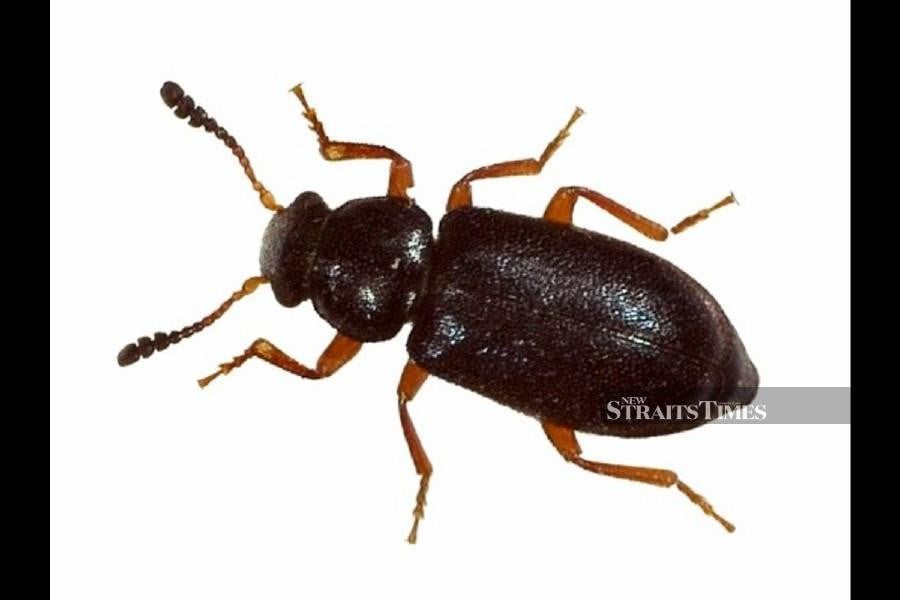JOHOR BARU: An invasion of red-legged ham beetles could cause the value and quality of local grains and dried foodstuff to plummet.
Insect toxicologist Dr Norhayu Asib said these bugs, which lay their eggs in untreated dried food like coconuts and salted fish, were an alien species that could cause ecological disaster as they hitchhike in cargo containers across the globe and gobble up local beetles and flies.
"It lays eggs in dried food produce like copra (dried coconut kernel) and salted fish, as well as other items that are not preserved properly with fumigation or the application of low grade chemicals, permissible on edibles.
"And if they are not detected early, they will hatch during transportation," adding that the cycle of gestation could take between 25 days and three months depending on environmental condition.
Around 160 tonnes of copra from Indonesia worth over RM200,000 were seized by the Malaysian Quarantine and Inspection Services Department (Maqis) at the Batu Pahat jetty on Monday after discovering that they were infested with the bugs which are native to the Middle East and Africa.
"When there is a widespread invasion of these bugs in our rice or coconuts, it would reduce the quality of our yield and affect our ability to sell the items as the beetles would be in the processed rice grains or on the coconut itself.
"They will cause the item to fester or leave marks and residue which can make the product unsightly or damage it altogether. This can also tarnish our reputation internationally if we are exporting such goods."
She said some years ago the red palm weevil made its way to Malaysia through date palm trees that were imported.
As a result many of the trees in coconut plantations in Terengganu, a state once famed for the crop, became 'sick', she said.
"One weevil alone can bore inside the trunk of a tall coconut tree and in eight to 12 months it can cause it to collapse."
Last month, Johor agriculture, agro-based industry and rural development committee chairman Datuk Zahari Sarip said the state planned to develop 1,325ha coconut plantations to produce a projected yield of 124,313 tonnes of the crop by 2027 to meet local demand.
He said the five-year plan was to boost national production and reduce reliance on imports which was about 35 per cent.
Zahari said while Johor was one of the main producers of the crop, the country's self-sufficiency rate dawdled at 66.6 per cent.
"Johor's output exceeds the estimated demand for coconuts in the state which is approximately 105,000 tonnes per year. However the country's self-sufficiency rate is 66.6 per cent."





